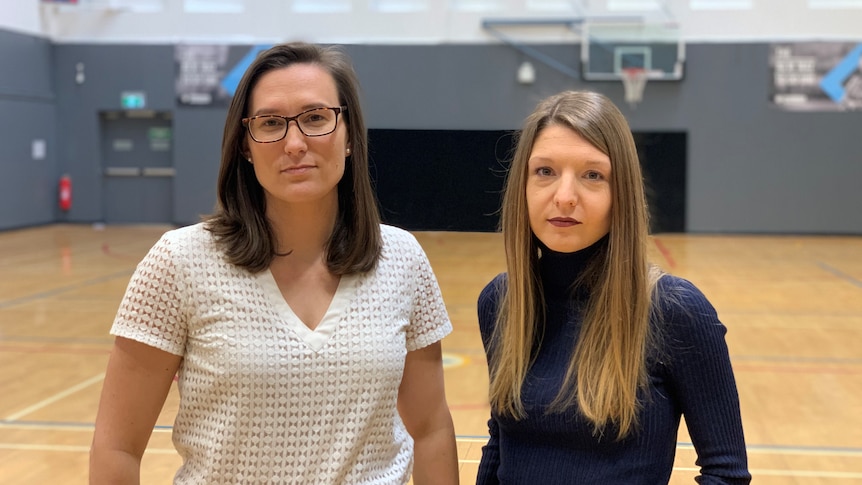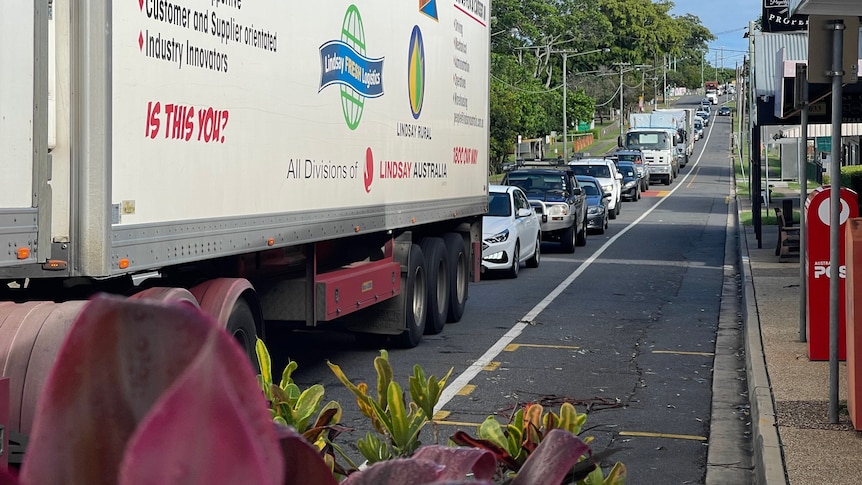Eighty-two per cent of people sampled in a study conducted by Victoria University have reported experiencing at least one form of interpersonal violence when participating in community sport as a child.
Key points:
- Three-quarters of respondents said they had experienced psychological violence or neglect in children’s sport
- Seventy-three per cent experienced violence from their peers, and 66 per cent said they had from a coach
- Women experienced higher rates of sexual and psychological violence, as well as neglect
The survey, which is the most comprehensive of its kind in Australia, asked 886 adults whether they had experienced physical, sexual or psychological violence, as well as neglect, from either coaches, peers or parents during childhood.
Seventy-six per cent said they had experienced psychological violence or neglect, 66 per cent reported physical violence and 38 per cent reported sexual violence.
One in three respondents, meanwhile, said they had experienced all four forms of violence.
The respondents had participated in a large variety of sports, with nearly 70 represented.
While such large numbers may come as a surprise to some, study co-author Mary Woessner said she was not shocked.
“From the literature, and knowing what’s happening internationally, I would say that’s right about what we were expecting,” Dr Woessner told the ABC.
“One of the first things you need to create change, positive change, is generate understanding that there’s a problem.
“We just want people to know it exists, so we can make evidence-based decisions to change it.”
Dr Woessner’s co-author, Aurélie Pankowiak, explained that the survey asked participants about explicit examples of violence they may have experienced in a sporting context.
For neglect, for example, participants were asked if they had experienced being refused time off for medical injuries.
For psychological, participants were asked whether they had been insulted, threatened or humiliated (for example by being bullied, given an unwanted nickname violence or otherwise ostracised).
“We had very concrete examples of different types of violence, so we did not leave it up to the person’s interpretation of whether or not what they experienced was violent,” Dr Pankowiak said.
One reason for this, the authors say, is that it can take victims a long time to recognize that what they experienced constituted violence.
“The average reporting time for sexual abuse can be 20 years or longer,” Dr Woessner said.
“At the moment we have a system that relies on children telling us what happened while knowing that the vast majority of literature says they won’t [come forward] for years to come.
“That’s why in this study, the easiest and safest way of collecting this data was to do it retrospectively. [by asking adults].”
Most children experience violence from peers
In a first, the study sought to break down children’s experiences of violence by who perpetrated it, including peers and parents as well as coaches.
This breakdown showed that 73 per cent of respondents experienced violence from their peers, followed by coaches (60 per cent) and parents (35 per cent).
Dr Woessner said distinguishing who was perpetrating violence was important because most academic literature, as well as media coverage, has focused on violence perpetrated by coaches, usually at the elite level.
This includes high-profile cases like that of Larry Nassar, the former US Olympic gymnastics team doctor who is serving an effective life sentence for sexually abusing at least 40 girls and women.
Australian swimmer Maddie Groves also recently came forward with the allegation that she was sexually abused by a former coach who is still working in the sport.
“You can distance yourself from an Olympic athlete experiencing abuse and start to think that it only happens at the elite level,” Dr Woessner said.
“There’s a mentality, ‘well that’s not my child, it’s not happening in my sport, or at my club’ … but I think with this data we can show that it might be.”
Data collected by Dr Pankowiak and Dr Woessner also showed significant gendered differences in the types of violence being experienced by men, women and gender-diverse people in childhood.
Women were more likely to experience sexual violence compared to men, while they were also more likely to experience psychological violence and neglect.
Men, on the other hand, were more likely to experience physical violence from a peer.
“When you talk about a gendered experience, we sometimes focus only on women,” Dr Woessner said.
“But it’s not that men aren’t experiencing violence, they’re just experiencing different types.”
The authors also analyzed a third category, gender-diverse people, encompassing those who identified as non-binary, gender questioning or selected “don’t know” for their gender identity.
While the sample size was small, at 17 people total, the authors found gender-diverse people experienced higher rates of many types of violence compared to cisgender men and women.
“We know from the literature broadly that marginalized communities experience institutionalized violence,” Dr Pankowiak said.
What was less clear, Dr Pankowiak said, was how the experience of systemic marginalization translated into interpersonal violence in a sporting context.
“We need an understanding of what’s driving those rates,” Dr Woessner said.
“We are talking about gender diversity here, but we know that the LGBTQI+ community broadly, people from culturally and linguistically diverse communities, they all have higher risks. We just don’t fully understand why and how that’s happening.”
A wake-up call with ‘no quick fix’
While this particular study did not look at the impacts of the childhood experience of violence, the authors said there was clear evidence that it could have lifelong detrimental effects.
“We do know that there are long-term impacts,” Dr Woessner said.
“Often they [victim survivors] leave sport. They might only leave the team they’re on, but there are some people who leave sport entirely.
“Beyond the individual, you see families torn apart, you see communities torn apart.
“Community sport is led by volunteers, and when something like this happens, it impacts not just the individual but their friends, their family, and by default the community.”
Moving forward, the authors argued it was essential to intervene early so that children and adults could continue to enjoy the many benefits sport provides.
“What we’re seeing in the data is that we have a cultural normalization of violence in sport,” Dr Woessner said.
“It’s systemic, there’s not one type of violence or only one type of perpetrator and it’s happening across all sports.”
Dr Woessner added that while there was no “quick fix”, there were clear steps sports could take to safeguard children.
“When we’re thinking about changing culture, we need to go a step further than just education and policies,” Dr Woessner said.
“We need to go from the ground up and work with clubs on initiatives that are long-lasting and can create behavioral change.
“I would hope that this data starts to change public perception on the prevalence of these experiences in community sport and that it calls sports to action.”
If you believe you have experienced violence during your childhood participation in sport, you can lodge a complaint through Sport Integrity Australia’s online portal.
.

